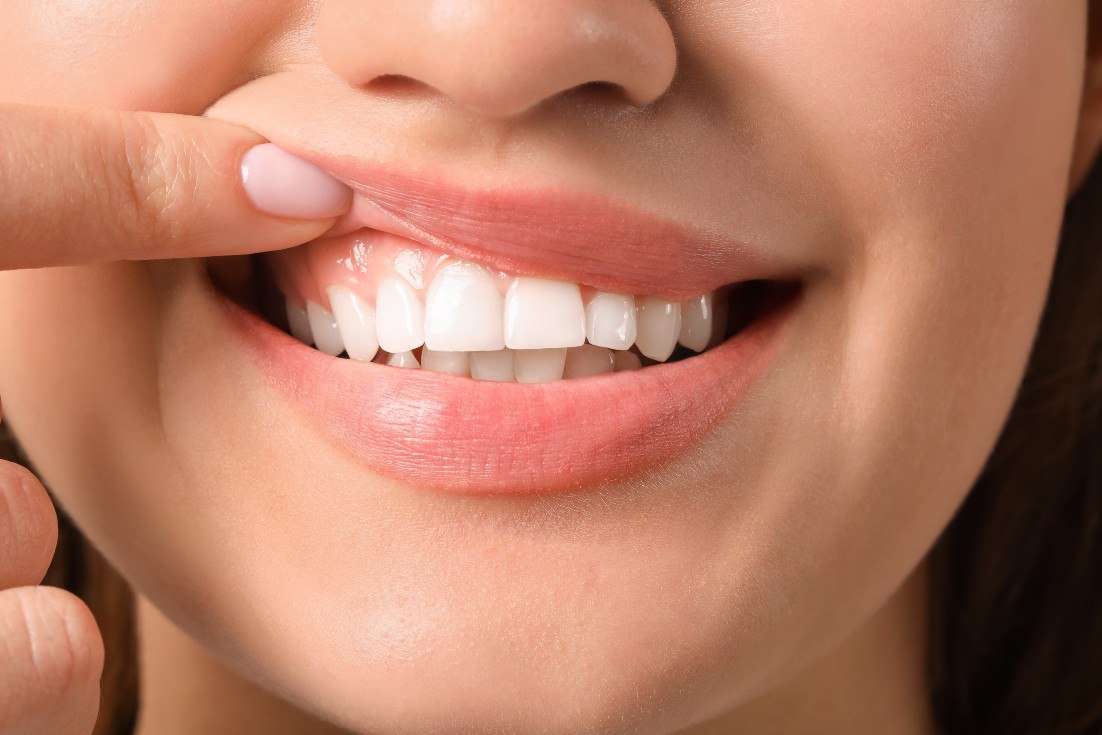
COVID-19 has been reported on every continent, and the numbers are staggering, with over 176 million infections and more than 3.8 million deaths.
One of the most perplexing things about COVID-19 is how the virus can present dramatically different results among patients. Some who test positive for Coronavirus never show symptoms, while it proves fatal for others. New research points to a potential link between severe COVID-19 outcomes and the presence of advanced gum disease or periodontitis.
What is periodontal disease?
Periodontal disease is an inflammatory disease that causes ongoing gum infection. It affects the soft and hard structures that support the teeth and can lead to tooth loss. Often the result of poor brushing and flossing habits, periodontal disease occurs after plaque has built up and hardened. It’s important to note that there are four stages of periodontal disease, and only the first stage (gingivitis) is reversible.
When gingivitis is left untreated, it can advance to periodontitis. In patients with periodontitis, the inner layer of the gum and bone pull away from the teeth and form pockets. Debris can collect in these small spaces and become infected. As the plaque spreads and grows below the gum line, the body’s immune system fights the bacteria. During this stage, toxins produced by the bacteria in plaque and the body’s enzymes involved in fighting infections start to break down the bone and connective tissue that hold teeth in place. As the disease progresses, the pockets deepen, and more gum tissue and bone are destroyed.
Periodontitis and increased risk
Studies have long suggested a link between periodontal disease and an increased risk of other inflammatory systemic diseases.
We each have billions of benign bacteria living in our mouths that are known collectively as “oral biofilm.” When these bacteria become trapped in plaque between the teeth, they produce pathogens that cause infection and inflammation of the gums. Pathogenic bacteria produce toxins that can be released into the bloodstream. As a result, the immune system reacts to the pathogens and their toxins by causing the liver to produce C-reactive proteins (CRP).
The increase in CRP levels results in chronic, low-grade inflammation throughout the body as it stays in a constant state of preparedness to fight the infection. If periodontal disease remains untreated, the body adjusts to this heightened inflammatory state, making the immune system less responsive.
How is periodontitis connected to COVID-19?
Patients with severe cases of COVID-19 are shown to experience an inflammatory response that can lead to complications such as intubation or death. A study by researchers at McGill University in Montreal, Canada, found that periodontitis exacerbated patients’ inflammation response. Patients with periodontitis were found to be 4.5 times more likely to require a ventilator and almost nine times more likely to die of COVID-19.
Researchers suspect that periodontal patients who contract COVID-19 start the course of the disease with an already high level of inflammation in their bodies, making them more susceptible to complications and severe outcomes.
What does this mean?
It is important to note that the McGill study only indicates an association between periodontitis and severe COVID-19 outcomes and does not establish a causal relationship between the two.
If you have any questions or concerns about periodontal disease and its potential connection to the increased risk of other diseases, we encourage you to contact our team.

